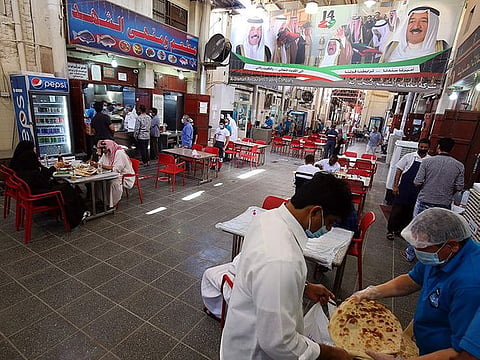Kuwait: Expats' mandatory insurance fees set at KD500
Insured worker has access to medical service of maximum KD10,000 annually

Cairo: After months of debate, a Kuwaiti health insurance committee has set the annual fees for the service, which is mandatory for expatriates above 60 to renew their work permits in the country, at KD500 per person, local media said.
Earlier this week, Kuwait allowed expatriates above 60 who hold no university degree to apply for renewing their work permits according to new rules that have ended a months-long ban on their employment.
The new system obligates this category of expatriates to pay an annual fee of KD250 per person and get comprehensive health insurance as conditions for work permit renewal.
The Higher Committee for Insurance Regulation has specified the annual health insurance cost at KD500 per worker, plus 3.5 dinars in administrative fees.
The document makes the holder eligible to get annual medical services costing up to KD10,000, including KD500 for dental care.
Last week, the Public Authority of Manpower (PAM) board headed by the recently appointed Justice Minister Jamal Al Jallawi approved the new system, thus putting an end to the disputed ban on employment of the expatriates above 60.
Exempted are spouses and children of Kuwaiti citizens and Palestinian holders of travel documents.
Last October, the Kuwaiti Legal Advice and Legislation Department invalidated the ban, saying it had no legal basis.
The Cabinet-linked department said the ban had been issued by PAM director-general without authorisation.
The ban, which went into effect earlier last year, triggered an outcry among rights activists, who argued that it affected thousands of expatriates and their families who long lived in Kuwait.
Around 4,013 such expatriates were forced out of the work market in Kuwait in the first six months of enforcing the ban, Al Qabas newspaper reported recently.
Critics also said the restriction also harmed many employers and destabilised the labour market in Kuwait, robbing it of experienced workers.
Sign up for the Daily Briefing
Get the latest news and updates straight to your inbox



